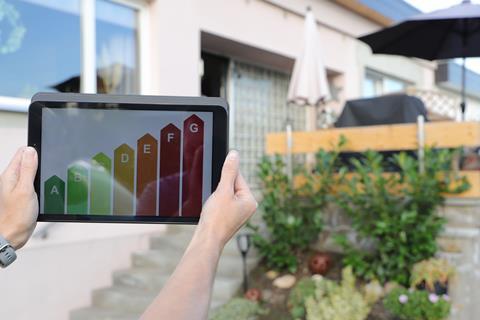Research reveals that small and medium-sized enterprises are engaging more with the topic of sustainability

The increase in awareness of sustainability issues in recent years has been phenomenal. It has been driven, in part, by the work of campaigners as well as forward-thinking politicians and business leaders. But it has also been prompted by the fact that the impacts of climate change are becoming ever more self-evident, from heat waves to catastrophic floods.
That increased awareness is evident in various public sentiment surveys, but it is also clear small and medium-sized enterprises (SMEs) are also engaging more with the subject, as evidenced by this year’s Lloyds Bank Net Zero Monitor, which tracks preparedness among SMEs.
According to the latest iteration of the monitor, 95% of SMEs are aware of the 2050 net zero target, as enshrined in the Paris Agreement and since embedded in UK law, with 37% saying they understand what this means for their business.
Of course, every sector has its own unique challenges along the journey and property is no exception. In particular, real estate professionals can see that tighter regulation is on its way, whether or not they have already started their sustainability journey for other reasons.
Most prominently, the government’s Minimum Energy Efficiency Standards are about to become significantly more testing. As things stand, landlords of commercial properties in England and Wales cannot as a matter of law grant new leases for properties with an Energy Performance Certificate (EPC) of ‘F’ or ‘G’ – the two lowest ratings.
From April next year, however, the rules will cover existing leases as well as new ones, meaning that landlords of the most inefficient properties will no longer be able to draw an income from them. What’s more, the expectation is that commercial properties will be required to have an EPC of ‘C’ or better by April 2027 and ‘B’ by 2030.
Regulations for the residential sector are less progressed, but there is a broad understanding in both the private and social sectors that changes are coming. Moreover, housebuilders of all types increasingly realise that consumers are also more environmentally aware and that energy efficiency has risen up their list of priorities, not least due to surging energy prices.
As a result – and combined with wider population-level concerns – SMEs in the property industry are much more likely than SMEs in general to understand what the net zero by 2050 target means for them. All in all, some 94% of SMEs in the sector are aware of the target, broadly in line with the rest of the economy. However, 90% say that they understand what that means for their business compared with 37% among all SMEs – a striking difference.
It should also be noted that this year’s monitor reveals that sustainability considerations are important to 94% of real estate and housing SMEs, compared with 79% just a year ago. When it comes to making sustainability-based decisions for their business, 96% say they are confident in their decision-making.
Substantial progress

Of course, awareness and confidence only gets us so far – such things need to be translated into direct action if they are to have a real-world impact. Fortunately, this year’s monitor shows evidence of substantial progress. It reveals that 20% of SMEs in the real estate and housing sector have measured their greenhouse gas emissions. Meanwhile, a further 27% have both measured their greenhouse gas emissions and are currently planning for how they reach net zero.
That represents a tangible step forward, especially given some significant headwinds seen this year. Asked about what events or trends have provided the greatest negative impacts on their journey to net zero, respondents to the monitor overwhelmingly cite the fallout from Russia’s invasion of Ukraine and its impact on global energy markets. The rising cost of petrol is the most commonly cited issue (77%), with the rising cost of energy also a problem (72%).
However, other issues have caused difficulties too, not least rising inflation, with 74% of those surveyed saying it has caused difficulties. Both Brexit and changing import/export regulations (47%) and supply chain disruption (59%) are also cited as barriers. In addition, rising interest rates are a concern (52%), although it should be noted that the survey took place before the so-called ‘mini-Budget’ and subsequent rises.
To a greater or lesser extent, those issues are likely to persist for some time to come. Unfortunately, respondents also fear that other issues will disrupt their journey to net zero in the coming months and years, some of which are connected to the wider macro-economic trends and globally significant events detailed above.
For instance, 40% of SMEs in the sector say that they worry about having insufficient budgets and/or facing higher costs. Given soaring inflation, perhaps that shouldn’t come as such a surprise. It is also an acknowledgement that building in a more sustainable fashion does still come at a cost. Elsewhere, 37% of respondents say that measuring their business’s environmental impact or performance would be an issue.
Finally, 31% of respondents say that they worry it is “difficult to reduce emissions outside our own processes”. That is a highly significant finding and points to the need for greater collaboration across the industry in order to make the journey to net zero a collective one. After all, a developer that concentrates merely on its own emissions is missing a trick if it does not also take account of those emitted by its supply chain.
Fortunately, there is some good news to report on that front. For instance, 42% of SMEs in the sector report that they feel other businesses they work with are putting pressure on them to reduce greenhouse gas emissions as part of their journey to net zero. Some 56% of SMEs, meanwhile, feel that other businesses they work with are supporting them with reducing greenhouse gas emissions, demonstrating an encouraging degree of collaboration.
Those are encouraging statistics. After all, the real estate and housing sector will only really begin to make progress on its journey towards net zero once it starts doing so in collaboration. As has often been said, development is a fragmented industry and one all too prone to conflict, which benefits few. In that context, the fact that around half of SMEs are already reporting that they are benefiting from collaboration with others is undoubtedly a good thing.
It is also positive that the pressure exerted by investors on larger companies to engage seriously with the environmental, social and governance (ESG) agenda appears to be filtering down to SMEs, which typically have fewer resources to invest in such issues.
However, it is clear there is still a very long way to go. Now is the time for the industry as a whole to pull together and fully embrace the journey to net zero. The prevailing economic headwinds may be challenging, but the winds of change are also coming down the road – and fast.
About Lloyds Bank
As we move towards a carbon-neutral economy, we’re helping businesses with discounted lending for green purposes and investing in clean growth to improve the energy efficiency of buildings.
Lloyds Bank offers a range of tools, products and services to help businesses achieve its green and net zero ambitions, such as:
– The Green Buildings Tool enabling businesses to identify, evaluate and understand their property to make it more sustainable and energy efficient.
– NextGeneration is an industry-leading sustainability benchmarking system for UK homebuilders. We have integrated NextGeneration’s sustainability standards into our existing propositions. This will allow businesses to access discounted funding through engaging with these standards.
– Discounted funding through the Clean Growth Financing Initiative, supporting a broad range of investments in sustainable business, from small improvements in environmental impact right through to large-scale renewable energy infrastructure.
Read more about our products and services at: https://www.lloydsbank.com/business/sustainability/products-and-services.html






























No comments yet